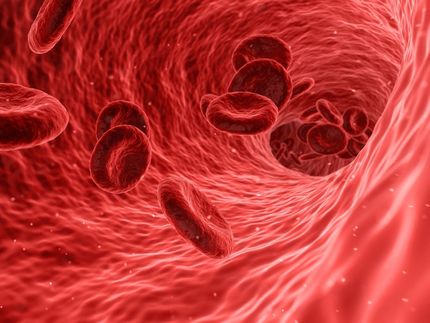First statin monotherapy to achieve regression of coronary atherosclerosis by angiography in a major clinical study
According to AstraZeneca, CRESTOR(R) (rosuvastatin) is the only statin to show regression of coronary atherosclerosis in a major clinical study. That result, which was based on intravascular ultrasound (IVUS) data from the ASTEROID study, has now been expanded upon by quantitative coronary angiography (QCA) measurements obtained during that study. This is the first time that QCA was used to demonstrate regression of atherosclerosis as a result of statin monotherapy. These new data were presented today at the 57th Annual Scientific Session of the American College of cardiology and showed that rosuvastatin treatment for 24 months reduced LDL-C levels well below traditional goals (1.57 mmol/L), together with significant increases in HDL-C, produced regression by decreasing percent diameter stenosis and improving minimum lumen diameter as measured by QCA in coronary disease patients.
"The QCA analysis of the ASTEROID study offers us additional, consistent insights into the treatment of patients with coronary artery disease," said Dr. Jean-Claude Tardif, Director of the Montreal Heart Institute Research Centre, and member of the ASTEROID steering committee. "Both QCA and IVUS techniques confirm that the use of rosuvastatin 40 mg can help achieve regression of coronary atherosclerosis, the underlying cause of heart disease."
ASTEROID (A Study To Evaluate the Effect of Rosuvastatin On Intravascular Ultrasound-Derived Coronary Atheroma Burden) was designed to study the effect of rosuvastatin 40 mg in 507 patients who had undergone coronary angiography and who had evidence of coronary artery disease (CAD). The QCA analysis was a secondary endpoint in the ASTEROID study. Angiograms taken at baseline and at the end of the 2 year study were analysed for changes in the percent diameter stenosis (%DS) and the minimum lumen diameter (MLD) using QCA imaging.
Organizations
Other news from the department research and development

Get the life science industry in your inbox
By submitting this form you agree that LUMITOS AG will send you the newsletter(s) selected above by email. Your data will not be passed on to third parties. Your data will be stored and processed in accordance with our data protection regulations. LUMITOS may contact you by email for the purpose of advertising or market and opinion surveys. You can revoke your consent at any time without giving reasons to LUMITOS AG, Ernst-Augustin-Str. 2, 12489 Berlin, Germany or by e-mail at revoke@lumitos.com with effect for the future. In addition, each email contains a link to unsubscribe from the corresponding newsletter.























































